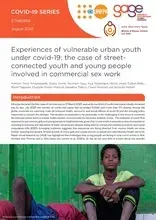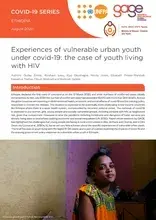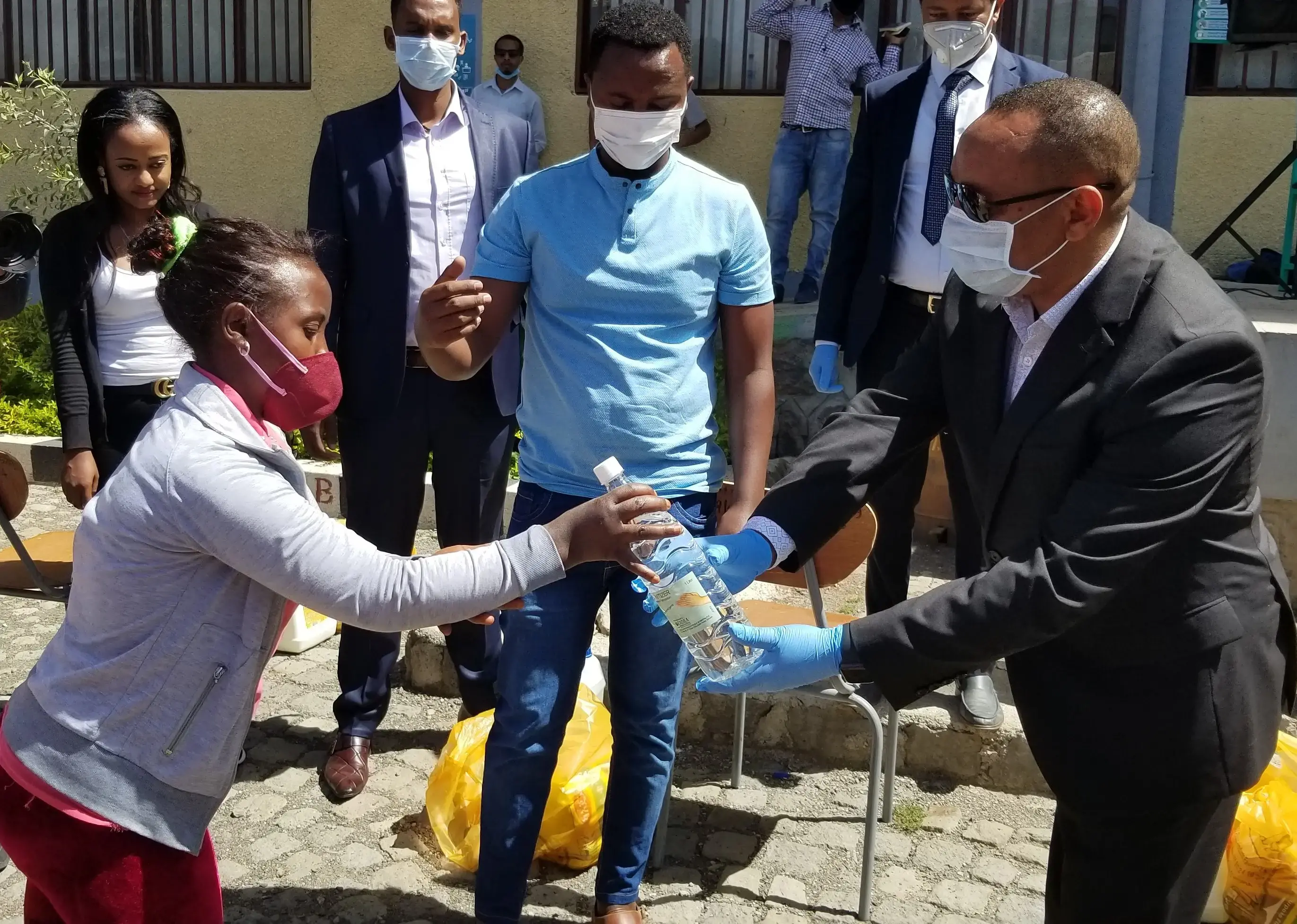A new portable battery-powered laboratory can identify the level of depression of the immune system of an HIV-positive individual at USD 0.25 to 0.50 per test, dozens of times cheaper than at current costs. The instrument was presented and displayed this week at a UNFPA-sponsored conference in the Ethiopian capital, Addis Ababa .
The instrument, a CD4 counter, was designed to change the face of HIV/AIDS care and support programmes, as well as the provision of Anti-retroviral drugs (ARTs), bringing them much closer to the most vulnerable segments of the population, the rural poor.
“Present costs for identifying the absolute count of CD4 are prohibitive for most African countries, limiting the ability to dispense antiretroviral drugs in a timely manner,” Lova Rakotomalala, Research Associate at the Cytometry For Life (C4L) Program and Research Coordinator for C4L in Ethiopia and Kenya. C4L is a non-profit organization based at Purdue University in the United States .
The CD4 counter is instrumental in determining when an individual will be affected by the disease known as Acquired Immune Deficiency Syndrome (AIDS).
After infection, the Human Immune Deficiency Virus (HIV), which causes AIDS, may be dormant for several months to years. The CD4 – a type of white blood cell – determines the timing of the virus in compromising the health of its host.
”Besides the lower cost of the test, unlike the CD4 counter machines available on the market at the moment, this machine does not need highly trained personnel to operate it,” said Rakotomalala.
The machine costs between USD4-5,000, against the current cost of USD35- 100,000 per machine. Showing results in 15 minutes, this light-weight instrument can easily be utilized in rural areas where there is no electricity. The machine has a life span of a year and half.
Rakotomalala, who just completed his doctoral degree in Cell biology at Purdue University , was part of the development team of the new CD4 counter. In his presentation of the instrument in Addis Ababa , he said that one of the most serious problems in caring for infected patients in Africa is the lack of low-cost CD4 cell testing technologies.
During the presentation, Rakotomalala recounted that the motivation for the development of the C4L program grew out of a call to action by Mr. Stephen Lewis, the former UN Secretary General's Special Envoy to HIV/AIDS Relief in Africa, in a speech at the 23 rd Congress of the International Society for Analytical Cytology in Canada in May 2006.
The CD4 machine developed by the C4L program is designed solely to measure CD4 levels in absolute count.
Dr. Rakotomalala said that several countries in the region have manifested interest in the machine as a tool for treatment eligibility. Triage or CD4 counting is important because Antiretroviral (ART) availability remains a challenge in most African countries.
“The quicker ART is administered to a patient, the better the odds are to prolong life expectancy and quality of living of people,” said Rakotomalala. He said the World Health Organization recommends starting ARTs on an absolute count of CD4 200 or below.
Already available on a trial basis, formal release of the machine is pending by the world standard setting United States Federal Drug Administration (FDA) and Center for Disease Control (CDC), as well as the World Health Organization.
“Provided the C4L project achieves all the goals it has set with respect to cost, portability and maintenance, the HIV Prevention and Control Office of Ethiopia (HAPCO) will fully support the implementation of the device here,” said Hussein Faris, Head of Planning and Programme Department with HAPCO, during the presentation event of the new CD4 machine.
Leading the Prevention component of the UN Joint HIV/AIDS Programme, UNFPA also leads the advocacy component of the UN joint initiative on HIV/AIDS.
In Ethiopia , UNFPA is coordinating and providing technical support to a youth focused HIV prevention and Sexual and Reproductive Health services, funded by the Norwegian Agency for Development and Cooperation (NORAD) and implemented by 10 local NGOs (2002-2005). Estimated at USD 16.3 million, the project is scheduled to be scaled up in a joint initiative between UNFPA and UNICEF through funding from the Norwegian Embassy in Ethiopia (2007-2011).
The UNFPA also supports a Voluntary Counselling and Testing (VCT) programme at Addis Ababa and Bahir Dar Universities . The project provides VCT services to the students and staff and has installed information centers and full-time Internet connection, where especially female students can access information on HIV/AIDS. The project also supports and works closely with university students' anti-AIDS clubs.




